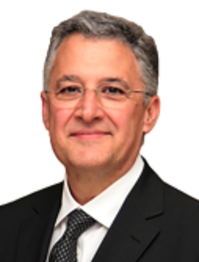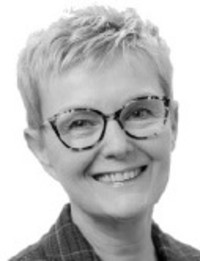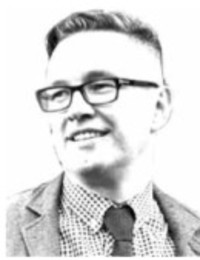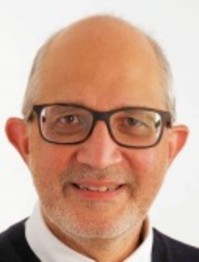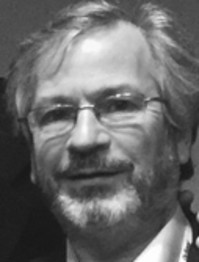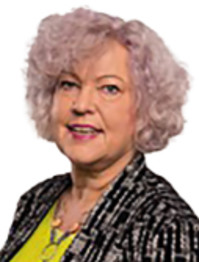Issues
Volume 19 - Issue 2, 2019
Fri, 22 Feb 2019

In this Issue
- Table of contents
- Editorial Board
- Download pdf (print optimised)
- Download pdf (screen optimised)
Editorial
Artificial hype
READ MORERadiologists, more than any other medical specialty, feel the professional and emotional ‘whiplash’ that began five or so years ago. Vanishing jobs (transforming radiologists into production units) for cost over quality for our patients, to the current shortage and need for more radiologists. AI introduced the threat that automation would take what few positions remained; now we know it can be a powerf...
Special Supplement
Unleashing the full potential of AI
READ MOREThe digital revolution has changed every aspect of our lives – from the way we communicate to the way we live and interact. We are slowly moving towards this transformation in healthcare, where big data, predictive analytics and Artificial Intelligence (AI) can do for healthcare what it has done for other industries. We have already started to see some of its benefits, from image interpretation to autom...
One of the largest AI platforms in healthcare is one you’ve never heard of, until now
READ MORENewly announced apps and AI-powered devices built on “Edison” demonstrate why an ability to integrate data from millions of systems and devices may bring real change to the healthcare industry For years, advocates have hyped artificial intelligence’s (AI) potential to do for healthcare what it’s doing for other industries – personalize recommendations, prioritize searches, and tag pictures. Inv...
How do you serve more patients without adding staff or beds? Here’s one hospital’s answer
READ MOREUK hospital announces first-of-its-kind hospital Command Center in Europe to improve efficiency and patient care Every day, up to 400 people come through the Emergency Department (ED) doors at Bradford Royal Infirmary (BRI) in Northern England. The hospital serves 500,000 people who live in Bradford and communities across Yorkshire, one of the largest regions in all of England. Over the last decade, ED at...
Analytics in the real world: How one radiology practice is helping patients get an MR exam, faster
READ MORECombining applied intelligence, analytics and technologies enabled a radiology center in Germany to reduce patient wait times for an MR exam from 6-8 weeks to just 1-2 weeks Radiomed, a private practice with nine locations across West-Central Germany, recently led a pioneering project combining digital tools with MR technology to increase productivity and quality in imaging. The program brings togeth...
This cardiac software from a Stanford basement is now one of the top of AI solutions available
READ MOREDr. Albert Hsiao co-developed the new ViosWorks MR software package to help speed up cardiac MRI exams It all started with a simple request made in the depths of one of the nation’s best hospitals. “Hey, I want to show you something.” Anja Brau was finishing up a meeting in the basement of Stanford Hospital with Dr. Albert Hsiao, MD, PhD, then a radiology resident at Stanford. Hsiao, who has...
The immunotherapy hurdle & why doctors could soon predict how each patient will respond
READ MOREA partnership between Vanderbilt University Medical Center and GE Healthcare will create AI-powered apps to enable safer and more precise immunotherapies. When two doctors oceans apart were jointly awarded the Nobel Prize in Physiology or Medicine for their work in immunotherapy – the breakthrough treatment that turns the body’s own immune system against the cancer...
Spotlight
NYC Go Red for Women movement: STEM Goes Red
READ MOREChelsea Beecher, Director of Development for the American Heart Association spoke to HealthManagement.org about the STEM Goes Red Movement, highlighting its goals, impact and future outlook. Chelsea Beecher serves as the Director of Development for the American Heart & Stroke Association in New York City. Chelsea passionately works to develop partner focused relationships that engage employees, clien...
Management Matters
Trust-abundant team principles
READ MOREHow can you incorporate the all-important ingredient of trust within your healthcare team? Once upon a time, it was possible for a doctor to hold most of what she needed to know to practice medicine within her own brain. This was long before Google and before medicine was carved up into specialties and sub-specialties. The advances brought on by the information age and technology mean that no individua...
Understanding bad communication
READ MOREChris Argyris’ insights on bad communication and defensiveness are the building blocks for organisational communication. A celebrated business theorist, Chris Argyris (1923-2013) was James Conant Professor of Education and Organizational Behavior Emeritus at Harvard Business School. His concepts form a large part of modern organisational development and organisational learning theory. An iconic and well...
Point-of-View
Why embracing Artificial Intelligence is beneficial for all
READ MOREIn many ways Artificial Intelligence (AI) may seem like a new concept in healthcare, mainly due in part to the recent traction the topic has made in the news in the last few years. It has even been falsely sensationalized, to further elevate buzz, as a tool that will one day replace clinicians altogether. The truth, though, is that companies like Hologic, Inc. have been working for many years to evolve proc...
Can machines behave morally enough for healthcare?
READ MOREWith the development of AI comes the question of ethics, especially in the human-centric healthcare setting. Artificial Intelligence (AI) is one of the most transformative forces of our time and presents a great opportunity to increase prosperity and growth. Over the last decade, major advances have been realised due to the availability of vast amounts of digital data, powerful computing architecture, and...
Operationalising AI in radiology
READ MOREOver the last few years, we have seen a rapid rise in the popularity of Artificial Intelligence (AI). This will be a prime focus for attendees at this year’s European Congress of Radiology. As a member of the European Commission’s AI Alliance, I am optimistic and excited about the real-world application of AI, but we must first address issues around integration and how best to operationalise this tec...
State-of-the-art syncope assessment
READ MOREHead-up-tilt testing (HUTT) and autonomic function testing are essential diagnostic procedures in syncope assessment. With the advent of unique innovative methods to noninvasively monitor beat-to-beat blood pressure, cardiac output, total peripheral resistance as well as autonomic regulation, highly efficient tools to assess cardiovascular and autonomic function have become state-of-the-art for improved...
Cover Story: Artificial Hype
AI is the new reality: the 4th healthcare revolution in medicine
READ MOREThe future is bright, if we continue to develop creative solutions to improve patient care, in collaboration with deep learning algorithms, then we’ll again have succeeded in advancing medicine into a new healthcare revolution, more evolved and sophisticated, to benefit clinicians and patients. When George Hinton PhD, noted computer scientist and godfather of neural networks, stood in front of a lar...
Artificial Intelligence in healthcare: What is versus what will be
READ MOREArtificial intelligence will alter healthcare as we know it, augmenting some jobs and outright replacing others. Though we can’t be sure when this will happen, what’s most important for now is understanding what AI is and what it isn’t. At medical conferences and in hospital cafeterias, few topics come up more frequently, or cause more confusion and speculation, than artificial intelligence (AI)....
Will AI lead to job cuts or will the tech improve working lives?
READ MORECan Artificial Intelligence (AI) be trusted to better working conditions and create more jobs or, as the technology becomes more widespread in healthcare, will it be a threat to employment in the sector? HealthManagement.org spoke to four Artificial Intelligence (AI) experts for their views. Luciano Floridi Professor of Philosophy and Ethics of Information, Director of the Digital Ethics Lab University o...
AI opportunities for healthcare must not be wasted
READ MOREOne of the world’s leading authorities on the ethics of Artificial Intelligence provides an overview on how the technology could impact healthcare and warns of opportunities not to be missed. I am reasonably optimistic about the opportunities that Artificial Intelligence (AI) presents. But I am not so optimistic about our ability to seize those opportunities. If only we could do the right thing, the o...
AI-based prediction in clinical settings: can we trust it?
READ MOREAn AI model used for prediction and prevention of delirium in elderly patients is reaping results and gaining the confidence of users. The challenge Users in healthcare are facing the situation that it is becoming increasingly difficult for them to incorporate information available for their decisions in a limited amount of time. Therefore it is necessary to provide relevant information for the re...
Artificial Intelligence: a next way forward for healthcare
READ MOREBy harnessing new insights and benefits offered by AOI and Machine Learning, Leeds Teaching Hospital is upgrading the precision of its healthcare information to enable a new world of prediction and analysis that sees the delivery of a new citizen focus in the care that is delivered Digital technology constantly changes, grows and delivers, but some of the promises of digital technology are ethereal when...
AI in medical imaging may make the biggest impact in healthcare
READ MORESoon every medical imaging machine will be connected to the cloud where AI algorithms will analyse data and help human doctors screen, assess, and diagnose patients. The potential impact of implementing AI to analyse medical images is huge. On the entire continent of Africa, if you remove Egypt and South Africa, there are only 6 paediatric radiologists. In Nigeria there are fewer than 60 radiologists fo...
Future of ultrasound: where are we going?
READ MOREProf. Sidhu, EFSUMB president, talks to Healthmanagement.org about his ECR 2019 presentations: using ultrasound simulation models as tools for training and education, the greatest potential in combining ultrasound with contrast-enhanced ultrasound in examining children and new initiatives in the pipeline leading to EUROSON 2019. At ECR 2019 you address the question “where are we going” on the use...
The AI-powered radiologist
READ MORETechnical advances in imaging acquisition and big data envision a bright future for diagnostic imaging. Radiologists working as data scientists can play a central role in precision medicine, leading as AI-powered radiologists. There is a special interest in the AI automation of interpretation of medical imaging, since radiologists' costs is one of the biggest expenses in radiology. But AI implementati...
Clinical ultrasound in the age of artificial intelligence
READ MOREUltrasound is a tool like no other in medicine. Most importantly, because it is a work of the hand and the eye, combining the art of reasoning, common sense (that is, intelligence), it provides a unique opportunity for the physician to be in direct contact with the patient. Ultrasound is a tool like no other in medicine, not only because of its well-known qualities (non irradiating, repeatable etc). Mo...
AI applications in breast imaging
READ MOREComputer aided imaging is not novel, having been around for 50 years. Developments have boosted the accuracy of computer-based analysis and breast imaging is at the forefront, as large databases are available, and radiologists tasks on images are relatively error prone. Artificial intelligence is the buzzword of today for radiology. Still computer aid for imaging is not novel, but has been around for a...
Winning Practices
Value-based healthcare and the doctor-patient relationship
READ MOREThe doctor-patient relationship can be considered a gateway to value-based care. Healthcare organisations that want to implement a value-based care model need to see the patient as their most important long-term asset. What is value-based care? Value-based care refers to a care-delivery model that is based on delivering patient care that provides healthcare value. But how do you define this value? The...
Nursing on the move: cross border hiring
READ MOREHow to navigate the multiple challenges involved in making a cross-border nursing hire a success. People have always moved from their home countries to other countries in order to settle there permanently or for a certain period to work. The reasons for this are manifold. The main stakeholders are the migrants themselves, the host employers, coordinating agencies as mediators for both sides, but also...
How following steps for quality impact healthcare consumerism
READ MOREHealthcare needs to invest in quality assurance and improvement to use resources and increase profitability. Quality Assurance (QA) is a programme for the systematic monitoring and evaluation of the various aspects of a project, service, or facility to ensure that standards of quality are being met. QA is a wide-ranging concept covering all matters that individually or collectively influence the quality...
The “One Stick Standard” for vascular access
READ MOREUS visualisation: one-stick standard and how the practice can significantly reduce- or even eliminate- dangerous complications. Obtaining vascular access is one of the most common procedures performed in U.S. hospitals, with more than 5 million central venous catheterisations (CVCs) performed annually (Feller-Klopman 2007). Nearly 80% of critical care patients undergo CVC (Gibbs and Murphy 2006) for ad...
Revitalising the aged heart through spermidine-rich diet
READ MOREStringent dietary adjustments, albeit effective in delaying ageing, are not attractive to the majority of people. Thus, pharmaceuticals or natural substances that mimic caloric restriction, like spermidine, are emerging as an alternative and feasible strategy to promote healthy ageing. Background We are in an era of artificial intelligence, big data, and machine learning, where humans are living longer...
The role of social media in cardiology
READ MORESocial Media is gaining significant popularity amongst the medical and allied health professionals. It enables a platform where dissemination of research can materialise very quickly, at no cost, for the benefit of colleagues and patients across the world. Social media (#SoMe) can now be considered one of the most important methods of communication in healthcare, especi...
Critical analysis of MRI-based classification systems for sport muscle injuries
READ MOREA critical review of eight identified cases of muscle injuries in professional FCB players from the club’s annual muscle injury database in 2017. Abstract In cases of suspected muscle injury, sports medicine professionals use imaging methods such as ultrasound (US) and Magnetic Resonance Imaging (MRI) to confirm the diagnosis. Various classification systems are available for determining the degree...
Achieving zero avoidable patient deaths by 2020
READ MOREThe 2019 World Patient Safety, Science & Technology Summit held in January presented best practices for preventing avoidable patient deaths and a guide to how hospitals can achieve this by 2020. I have just returned from the 7th Annual World Patient Safety, Science and Technology Summit. I still remember vividly the impact I felt when I attended my first summit in 2013. I had been in healthcare for...
Innovation in paediatric rehabilitation
READ MOREReview of innovative technologies used at the ALYN Hospital Paediatric and Adolescent Rehabilitation Centre in Jerusalem; past and future technological trends in the field worldwide, including technologies relating to augmented communication, neuro- and movement-sensing, miniaturisation, powered mobility, virtual reality, tele-rehabilitation, 3D gait analysis. Rehabilitating children presents speci...
I-I-I Blog
Highlights from the I-I-I Blog
READ MOREVisit https://healthmanagement.org/blog/index or contact [email protected]. Co-Founder & Director - Remedium Partners, UK TOP QUOTE: “Solving the NHS doctor shortage isn’t an overnight solution – the fact that agency locums haven’t ‘fixed’ the health services’ problems is testament to the fact that a long-term solution is needed.” See more at: https://iii.hm/rxp Venture...

